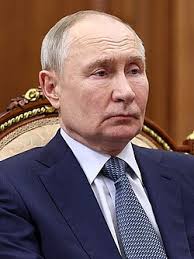The Current Influence of Vladimir Putin in Global Politics

Introduction
Vladimir Putin, the President of Russia, continues to be a pivotal figure in global politics. His actions and policies not only shape the course of Russian society but also affect international relations, particularly in Europe and the United States. With Russia facing new challenges and shifting alliances, understanding Putin’s influence is crucial for comprehending current global dynamics.
Recent Developments
In recent months, Putin’s focus has shifted towards strengthening military capabilities and addressing economic concerns exacerbated by sanctions imposed by the West. Following the invasion of Ukraine in early 2022, Russia has faced unprecedented economic challenges. Nevertheless, Putin remains steadfast, declaring victories in various regions of Ukraine while continuing to pursue a robust defense strategy, including the recent announcement of increased military spending.
Internationally, Putin’s alliances are also under scrutiny. Reports indicate that Russia is strengthening ties with countries like China and Iran, showcasing a strategic pivot towards non-Western partnerships. The upcoming BRICS summit in 2024 will further highlight these relationships, as Russia aims to present itself as a counterbalance to Western hegemony. This shift raises questions about the future of global governance and the potential for a new world order based on multipolarity.
The Internal Landscape
Domestically, Putin faces criticism over multiple issues including political dissent, economic hardship, and civil liberties. The recent protests against rising living costs highlight discontent among the populace. However, Putin’s administration has demonstrated resilience in quelling opposition and reinforcing state control over media and public discourse. These actions indicate not only a strong grip on power but also the challenges of managing a populace in the face of increasing socio-economic pressures.
Conclusion
Vladimir Putin’s influence remains significant in both domestic and international arenas. His strategic decisions will likely continue to shape the geopolitical landscape in the coming years. As Russia grapples with economic sanctions, military engagement, and internal dissent, the world watches closely to see how his leadership will evolve. For global audiences, understanding Putin’s actions is essential in anticipating future developments, particularly in context to NATO’s response and the ongoing tensions within Eastern Europe. The coming months will be crucial in determining the trajectory of Putin’s policies and their wider implications on international relations.
